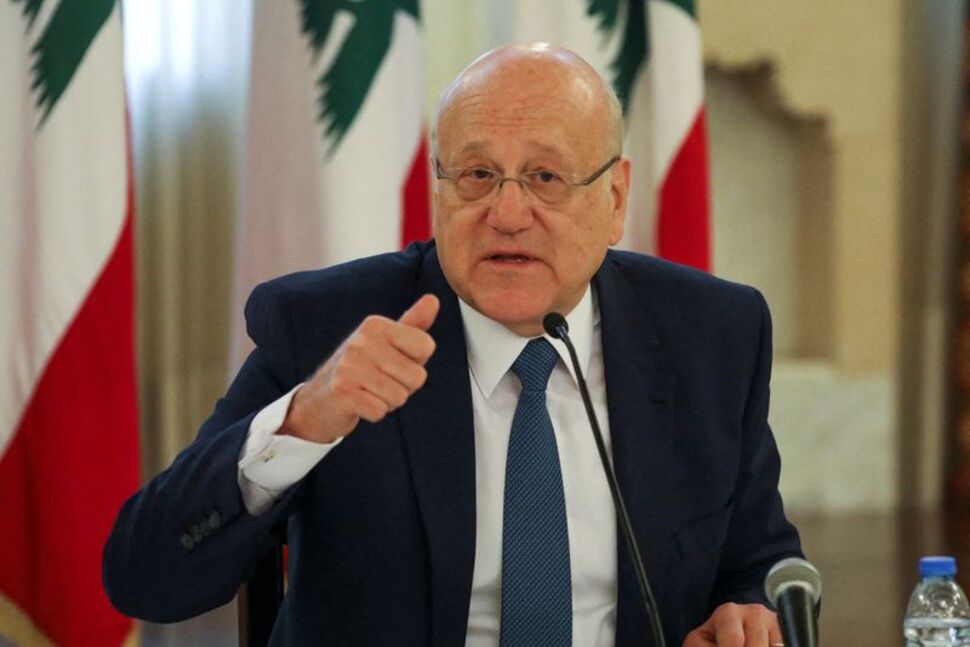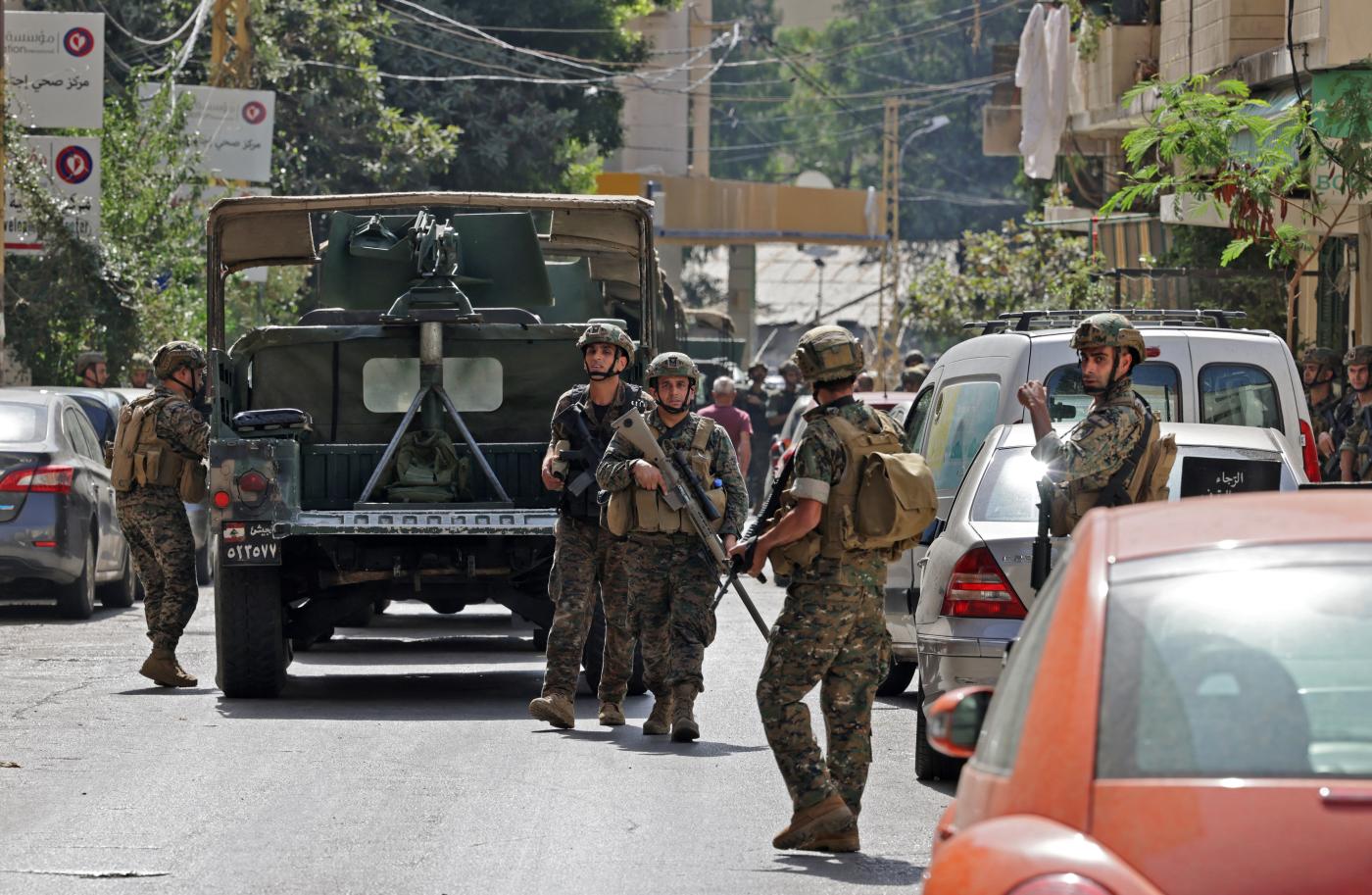By Henri Astier BBC News –– People in Lebanon have woken up in two rival time zones, amid a row between political …

By Najia Houssari - arabnews.com -- BEIRUT: An abrupt decision by Lebanese caretaker Prime Minister Najib Mikati to postpone the start of daylight saving time by one month has turned into a major political dispute, overshadowing the country’s dire economic crisis. Despite repeat IMF warnings over the state of the Lebanese economy, the latest political controversy surrounding the postponement from March 25 to April 21 is dominating debate in the country. The dispute over daylight saving time also involves religious and sectarian differences, and comes as Muslims mark the holy month of Ramadan. It means those fasting must break their fasts an hour earlier than planned. Lebanese institutions on Saturday took divergent positions on the move.Multiple media outlets (MTV Lebanon, LBCI and AlJadeed) said that it “will not abide by the decision and will commit to the universal time.” According to one political observer, the dispute reflects a “political vacuum, given that an absurd decision was explained in a sectarian way.”
This dispute “showed the loss of confidence in the ruling political class and the scale of randomness that political action in Lebanon can slip into.” The postponement caused confusion among institutions working with other states, notably the international airport, banks and mobile phone networks that automatically adjust to daylight savings each year. Airlines were forced to reschedule flights, and the two major mobile networks in the country sent a written message to subscribers, asking them to “manually adjust the time on their mobile phones before the midnight of Saturday-Sunday, to avoid the time change on their screens.” Secretary General of Catholic Schools Father Youssef Nasr said: “Private educational institutions and the Federation of Private Educational Institutions will abide by Mikati’s decision until it is reversed.” Mikati’s move was met with sarcasm on social media platforms. One political activist said: “We are in the republic of wasting time.” Another said: “It looks like Lebanon’s connection to the global system is not important.” Other warned that the decision “was taken by leaders who do not acknowledge the presence of others in the country.”
By Cate Chapman, Editor at LinkedIn News Americans have moved more than half a trillion dollars from smaller and regional banks since …

By BASSEM MROUE Associated Press -- BEIRUT -- Lebanese security forces Wednesday fired tear gas to disperse hundreds of protesters, mainly retired soldiers, who tried to break through the fence leading to the government headquarters in downtown Beirut. The violence came amid widespread anger over the harsh economic conditions in the country, where mismanagement by the ruling class has been rampant for years, preceding the economic meltdown that started in late 2019. The retired soldiers and policemen demanding better pay clashed with riot police and troops. Several people suffered breathing problems from the tear gas. The protesters hurled stones at the officers protecting the government headquarters and repeatedly tried to break through the fence. There was no immediate information about any injuries during the violence. The protest was called for by retired soldiers and depositors who have had limited access to their savings after local banks imposed informal capital controls amid the crisis. The controls restrict cash withdrawals from accounts to avoid folding amid currency shortages. People with dollar accounts can only withdraw small sums in Lebanese pounds, at an exchange rate far lower than that of the black market.
Since early Wednesday, riot police and army special forces were deployed around the government headquarters, an Ottoman-era three-story building known as the Grand Serail of Beirut. Nearly two hours after the violence broke out, the protesters dispersed. The Lebanese pound hit a new low on Tuesday, selling for more than 143,000 pounds to the dollar before making some gains. The pound has lost more than 95% of its value over the past three years. The official rate is 15,000 pounds to the dollar. “My monthly salary is $40. How can I survive,” screamed a retired army officer. Most people in Lebanon get paid in Lebanese pounds and have seen the value of their salaries drop over the past years as the pound crashed.
Khazen History


Historical Feature:
Churches and Monasteries of the Khazen family

St. Anthony of Padua Church in Ballouneh
Mar Abda Church in Bakaatit Kanaan
Saint Michael Church in Bkaatouta
Saint Therese Church in Qolayaat
Saint Simeon Stylites (مار سمعان العامودي) Church In Ajaltoun
Virgin Mary Church (سيدة المعونات) in Sheilé
Assumption of Mary Church in Ballouneh
1 - The sword of the Maronite Prince
2 - LES KHAZEN CONSULS DE FRANCE
3 - LES MARONITES & LES KHAZEN
4 - LES MAAN & LES KHAZEN
5 - ORIGINE DE LA FAMILLE
Population Movements to Keserwan - The Khazens and The Maans
ما جاء عن الثورة في المقاطعة الكسروانية
ثورة أهالي كسروان على المشايخ الخوازنة وأسبابها
Origins of the "Prince of Maronite" Title
Growing diversity: the Khazin sheiks and the clergy in the first decades of the 18th century
Historical Members:
Barbar Beik El Khazen [English]
Patriach Toubia Kaiss El Khazen(Biography & Life Part1 Part2) (Arabic)
Patriach Youssef Dargham El Khazen (Cont'd)
Cheikh Bishara Jafal El Khazen
Patriarch Youssef Raji El Khazen
The Martyrs Cheikh Philippe & Cheikh Farid El Khazen
Cheikh Nawfal El Khazen (Consul De France)
Cheikh Hossun El Khazen (Consul De France)
Cheikh Abou-Nawfal El Khazen (Consul De France)
Cheikh Francis Abee Nader & his son Yousef
Cheikh Abou-Kanso El Khazen (Consul De France)
Cheikh Abou Nader El Khazen
Cheikh Chafic El Khazen
Cheikh Keserwan El Khazen
Cheikh Serhal El Khazen [English]
Cheikh Rafiq El Khazen [English]
Cheikh Hanna El Khazen
Cheikha Arzi El Khazen
Marie El Khazen